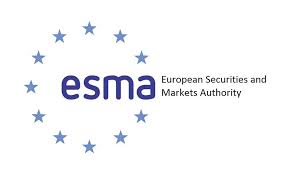The European Securities and Markets Authority (ESMA), has published its 2020 Work Programme (WP), setting out its priorities and areas of focus for the next 12 months in support of its mission to enhance investor protection and promote stable and orderly financial markets. (https://www.esma.europa.eu/sites/default/files/library/esma20-95-1132_2020_annual_work_programme.pdf)
During 2020, in addition to implementing ESMA’s new mandates, the key areas of focus under its activities of supervisory convergence, assessing risks, single rulebook and direct supervision will be:
• Supervisory Convergence – strengthening the convergence powers based on the new ESMA Regulation, while ensuring consistency in the application of MiFIDII/MiFIR for secondary markets. It will continue its work on the performance and cost of retail investment products, while facilitating the development of its data-driven supervision;
• Assessing Risks – publication of its annual statistical report series based on EMIR, AIFMD and MiFID II data and promoting cooperation on risk analysis;
• Single Rulebook – contributing to the implementation of the Capital Markets Union, Fintech and Sustainable Finance Action Plans, developing the necessary rules under EMIR 2.2/EMIR Refit and reviewing MiFID II/MiFIR; and
• Supervision – ensuring effective supervision of credit rating agencies (CRA), trade repositories (TR), entities under the Securitisation Regulation and SFTR and Tier 2 CCPs under EMIR 2.2, along with the recognition of third-country CCPs.
Specifically from a securities lending markets perspective, ESMA is set to:
• Issue guidelines on portability and position calculation – supporting the implementation of SFTR as a new reporting regime. ESMA will also deliver Q&As and opinions on SFTR data requirements.
• Continue its promotion of the LEI – as part of its work to support the development and implementation of data standards and identifiers including UTI, UPI, and CDE.
• Collect enough data on SFT reporting from TRs in 2020 to fine-tune framework – and further calibrate its risk framework and identity additional periodic information needed to monitor SFTR compliance.
• Implement the Data Strategy enhancing data quality for SFTR – through the Data Quality Action Plans, to foster convergence and enhance the quality/usability of data.
ISLA will be monitoring any developments closely and will ensure that outputs from ESMA are incorporated into the Association’s respective priorities and initiatives.
